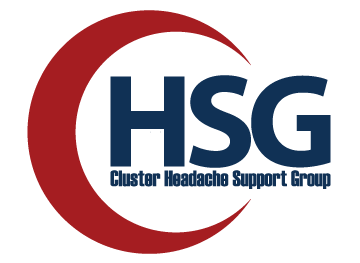Published: May 23, 2013 by: Eric Segaard
Last Updated: May 31, 2019 by: Tammy Rome
People have been talking about treating cluster headache with psychedelics for years. More doctors and researchers are motivated to study their potential to treat a variety of conditions. There are some fascinating and encouraging possibilities for treatment. However, at this point, the lack of consistent proof by clinical standards for safe and effective use is considerable. Here are some things to consider before making the choice.
Tryptamines
The beneficial compound central to the discussion is the naturally occurring alkaloid tryptamine. The hormone melatonin and the neurotransmitter serotonin, both already in the human body, are tryptamines. Tryptamines are also in fungi and plants and are present in psychedelic substances. They are the basis for a family of drugs called triptans, which are used to treat headaches.
Triptans
There are several different triptans:
- sumatriptan (Imitrex, Imigran)
- almotriptan (Almogran, Axert)
- eletriptan (Relpax)
- frovatriptan (Frova)
- naratriptan (Amerge, Naramig)
- rizatriptan (Maxalt)
- zolimtriptan (Zomig)
All have different effects, depending on the medication, dose, delivery method, and individual tolerance. They’re available as pills, dissolving tablets, nasal sprays, and injections. One thing they all have in common is the benefit of refinement, which standardizes potency and efficacy.
Similar in chemical structure are the ergot alkaloid drugs, ergotamine (Cafergot) and dihydroergotamine (DHE and Migranal).
Safety & Effectiveness
Pharmaceuticals always have more scientifically proven safety than herbal remedies or other alternative treatments. It’s part of the research process. Clinical trials also weed out reporting errors due to things like placebo effect and confirmation bias.
Anecdotal information can be very positive and a useful tool in determining what should be researched. Yet compared to the scientific method, anecdotes are more vulnerable to over-stating the positive effects and under-reporting of side effects, complications, and contraindications.
Psychiatric Risks
Along with the positive results people have experienced with psychedelics, are documented development of hallucinogen persisting perception disorder (HDDP), dissociative disorders, and psychosis.
Typically, patients who consider psychedelics do so out of a sense of desperation. Many are suffering from comorbid depression, anxiety, and suicidal ideation. This unfortunate situation may result in rash or impulsive decision-making. It may also increase the risk of developing psychiatric complications. In this vulnerable state, patients may unintentionally discount or rationalize negative effects.
Controlled clinical trials are designed to prevent this from occurring by randomly assigning subject to a placebo treatment. Neither researcher or subject knows who’s taking the placebo or active drug. This safety measure is bypassed when patients choose to self-treat with alternative medicine.
Treatment Selection
It is more appropriate to begin medical treatment with the treatment with the best evidence for safety and effectiveness. Gradually, over time, both patient and doctor can make treatment changes to include other treatments with less evidence supporting their use. Only when every orthodox strategy becomes a dead-end does it make sense to turn to an alternative.
When patients circumvent this process by seeking alternative options first, they risk unnecessary suffering and worsening of health. Opting out of medical care also slows the progress of scientific discovery because it removes the pressure to find solutions. If patients don’t seek medical care, doctors don’t know what treatments work and cannot gauge the severity of symptoms.
Last Resort
There are times when turning to alternative medicine becomes a necessary last resort. When patients experience success, they naturally share that experience. Discussion and investigation help everyone.
There is a distinct difference, however, between sharing experience and encouraging, enabling, or pressuring others to make the same choice. The decision to choose treatments outside the mainstream is a very personal decision that involves considering many factors. Offering medical advice, in the form of detailed instructions on dosing, preparation, and access, to others is both irresponsible and illegal.

